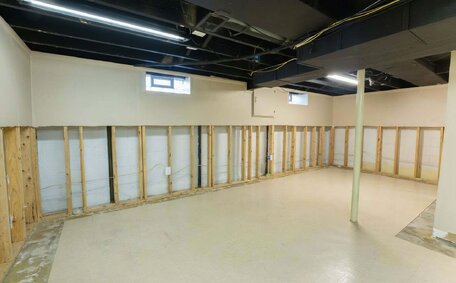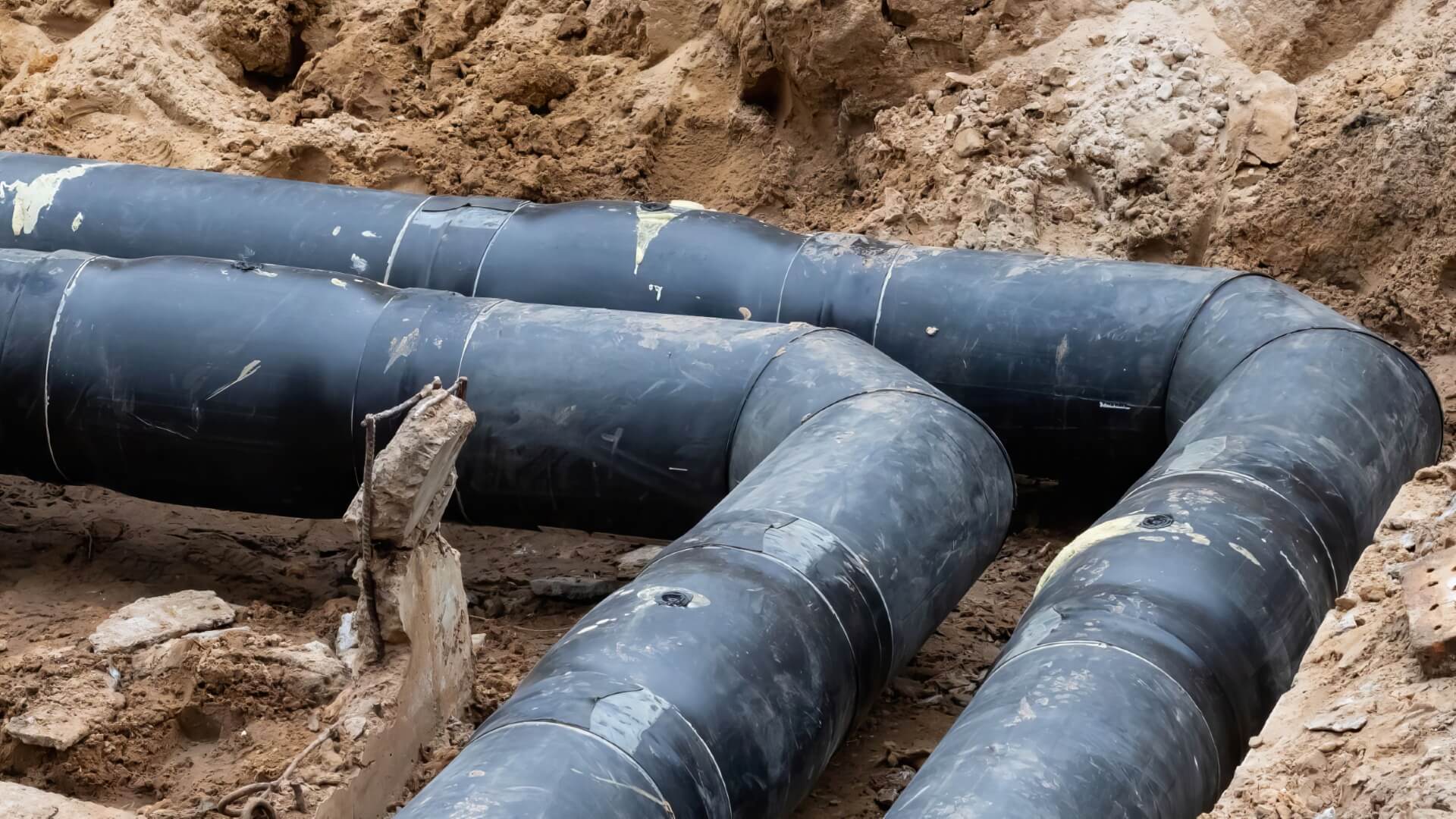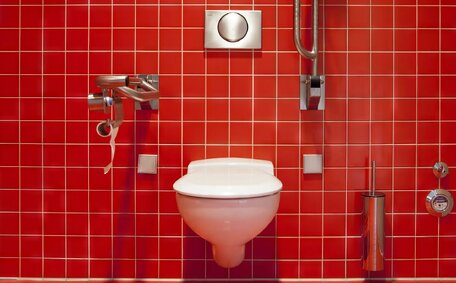Assessing If You Have a Clogged Shower Drain
Noticing your shower water draining slower than usual or hearing gurgling noises coming from the drain? These are telltale signs you may have a clogged shower drain.
Some other indications your shower drain is blocked include water pooling around your feet as you shower, foul odours coming from the drain or bubbles rising up when water goes down. A fully blocked drain may even prevent water from draining at all.
Start by removing the drain cover and shine a flashlight down the opening. Check for any visible obstructions like hair, soap scum or debris buildup. You can also try pouring a pot of boiling water slowly down the drain to see if it clears the clog.
Running water down the drain for a minute and observing the speed and noise can help assess the extent of the blockage. If it appears severe, calling a professional plumber may be your best bet.
Common Causes of Clogged Shower Drains
Some of the most frequent culprits behind clogged shower drains include:
Hair Buildup
As hair washes down the drain, loose strands can wind around each other and get tangled in the pipe. Over time, thick mats of hair blocking water flow can form. Hair is one of the leading causes of clogged shower drains.
Soap Scum
The fats and oils in soap products can congeal into a thick, sticky film along pipe walls. This buildup traps other debris floating by, eventually forming a mass that blocks drainage.
Dirt and Sediment
Particles of dirt, sand, skin and other sediment in the water supply get caught in drains. These particles accumulate over time, hardening into obstructions.
Mineral Deposits
Hard water contains dissolved minerals like calcium and magnesium. As water evaporates, it leaves mineral residue behind in pipes. This scale gradually reduces drain openings.
Small Objects
Stray items like jewellery, bath toys or razors can sometimes fall down the drain. These objects can get lodged in traps or further down pipes.
Regularly removing hair and gunk from drains can help prevent clogging. Installing drain catchers is also useful for capturing debris before it goes down the pipe.
Trying DIY Unclogging Methods
Before calling a professional, try some DIY methods to clear your clogged shower drain:
Plunger
A basic sink or toilet plunger can generate enough suction to dislodge blockages. Place the plunger over the drain opening and plunge up and down rapidly 10-15 times. Repeat a few times, flushing water in between.
Baking Soda and Vinegar
Mix 1 cup baking soda with 1 cup vinegar and pour down the blocked drain. The chemical reaction can help break up grease and hair accumulations.
Let sit 5-10 minutes. Let sit 5-10 minutes.
Alternatively, pour 1⁄2 cup baking soda down the drain followed by 1 cup vinegar. Let the fizzing reaction work for 10-15 minutes before flushing with hot water.
Boiling Water
Heat a large pot of water to a rapid boil. Carefully pour it slowly down the drain to wash away built-up gunk. Repeat a few times for tough clogs.
Be cautious handling boiling water to avoid burns. Wear gloves and safety goggles.
Drain Snake
For deeper clogs, use a small drain snake designed for shower and sink drains. Feed the hooked wire down the pipe while cranking the handle. Rotate and pull to ensnare and extract hair or debris.
Take care not to scratch your pipes. Stop if you meet resistance.
Attempt these methods before calling a plumber, but if clogs persist, professional drain cleaning is likely required.
Safe DIY Drain Clearing Techniques
When attempting to clear a clogged shower drain yourself, safety should always come first. Take proper precautions to avoid injury.
Protective Gear
Wear closed-toe shoes, gloves and safety goggles when working with drain cleaning solutions.
Goggles prevent splashing liquids from injuring your eyes. Gloves reduce contact with caustic substances. Gloves reduce contact with caustic substances.
Proper Chemical Handling
Read packaging labels and follow usage directions when using drain cleaners. Never mix bleach with other drain cleaners, as toxic chlorine gas can result.
Only mix chemicals in well-ventilated areas. Avoid inhaling fumes.
Cautious Snake Usage
Feed drain snakes into pipes slowly to avoid scratching them. If you meet significant resistance, stop and call a professional rather than risk damaging pipes. Ensure you have a firm grip when cranking and retrieving the snake to prevent injury.
Mind the Hot Water
When pouring boiling water down drains, wear gloves and safety goggles. When pouring boiling water down drains, wear gloves and safety goggles. Keep pets and children away to avoid accidental scalding.
Let drains cool before touching.
Exercising proper precautions when attempting DIY drain cleaning prevents accidents. If you are ever unsure about safety, contact a professional plumber for assistance.
When Professional Help is Needed
Though DIY methods may dislodge simple clogs, some blocked shower drains require a professional plumber’s expertise.
Call a plumber if:
- DIY attempts don’t improve drainage
- Clogs are recurrent or severe
- You need pipes snaked beyond your reach
- Drain backups are extensive
- Plumbing leaks occur
- Signs of rust, corrosion or damage are present
Our licenced St Peters Plumbing technicians have the high-powered equipment and skills to thoroughly clear stubborn clogs and address underlying pipe problems.
We use advanced methods like hydrojetting to scour pipes clean with pressurised water. Our industrial augers can snake 100 feet deep to clear blockages. We’ll inspect drainage with pipe cameras to diagnose issues.
For prompt assistance unclogging your blocked shower drain, contact our 24/7 emergency plumbing service in St Peters, Sydney. Our plumbers respond rapidly to clear drains, minimising water damage and restoring proper flow.
Call (02) #### #### or email us to schedule an appointment. We offer competitive rates with no call out fees for blocked drain cleaning in St Peters.
Preventing Future Clogs
Preventing clogs in your shower drain is much easier than clearing them. With some simple habits, you can avoid future blockages:
Install a Drain Catcher
Drain catchers or drain strainers trap debris before it enters pipes. They easily catch hair and soap scum to keep drains clear.
Limit Hair Down Drains
Avoid rinsing large amounts of hair down shower and sink drains as it can tangle into clogs. Promptly remove wads of loose hair from drains.
Only Flush Water
Never pour grease, oil or other thick substances down drains. These coat pipes and attract more gunk. Use sink strainers when washing dishes.
Periodic Maintenance
Once a month, flush drains with boiling water or baking soda and vinegar to remove buildup. Use a zip-it tool to extract accumulated hair from drains.
Watch What Goes Down Toilets
Avoid flushing anything besides toilet paper and bodily waste. Items like wipes and cotton balls can get stuck and cause clogs.
Making drains a regular part of your cleaning routine keeps them clear and flowing. Contact St Peters Plumbing in St Peters, Gold Coast if you need professional drain cleaning or maintenance.
Installing a Hair Catcher
Installing a hair catcher over your shower drain is an effective way to prevent clogged drains. Hair catchers, also called hair stoppers or shower drain strainers, are designed to trap all the loose strands before they go down the drain.
Here’s how to properly install a hair catcher in your shower:
Get the Right Hair Catcher
Choose a hair catcher that fits your drain size. Measure the diameter of your drain opening. Hair catchers come in different shapes and sizes to fit standard shower drains.
Opt for a catcher with small perforations that allow water flow but catch strands. Some have fine mesh screens while others have barrier combs. Make sure the design won’t easily clog.
Clean the Drain
Before installing the hair catcher, thoroughly clean your shower drain and remove any existing hair buildup. You can use a zip-it tool to extract hair or try baking soda and vinegar.
Place the Catcher
Position the hair catcher directly over the drain opening, with the comb or screen side facing down. Many have rubber gaskets on the bottom to create a tight seal and hold it in place.
Test Water Flow
Turn on the shower to test water drains freely through the catcher. Adjust the position if needed so it aligns with the drain opening. The catcher should sit flat and stable so hair can’t bypass under it.
Check the hair catcher regularly when you clean your shower and remove accumulated hair wads. Properly installed and maintained hair catchers greatly reduce hair clogs by trapping strands before they reach pipes.
Regular Drain Maintenance
Establishing a regular maintenance routine is crucial for preventing clogged shower drains. This involves inspecting, cleaning and protecting your drains on a consistent basis.
Use Drain Filters
Installing drain filters or strainers is an effective maintenance step. These devices trap debris and prevent it from clogging pipes. Clean built-up hair and soap scum from filters weekly.
Rinse With Vinegar
Pouring 1 cup of vinegar down drains weekly helps dissolve soap scum, hard water deposits and light debris. Let it sit 5 minutes before running hot water.
Snake Drains
Use a small plastic zip-it tool every month to hook and extract built-up hair from your shower and sink drains. Remove tangled wads before they form clogs.
Professional Inspections
Have a licenced plumber inspect your drains every 6 months to 1 year. They can snake pipes, ensure proper water flow and address potential problems.
Avoid pouring grease, oil and harsh chemicals down drains. Only use drain cleaners made specifically for showers and sinks.
Establishing a routine drain maintenance plan reduces debris buildup over time. Contact our St Peters Plumbing team if you need assistance with professional drain cleaning and maintenance in St Peters, Sydney.






